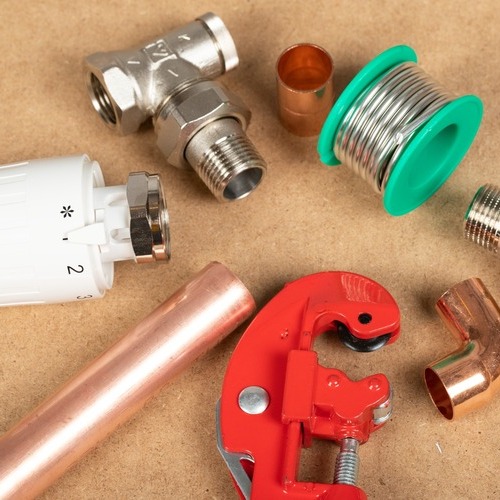
How do you prevent the need for central heating repair?
If you haven’t had your central heating professionally inspected here in the Warner Robbins, Georgia area already, now is the time! But why now? Because if you’re going to need central heating repair, you don’t want to find out one night when the temps drop into the twenties. And if you do find yourself having issues, our team can always be there to help. Just give us a call at 478-960-5825 if you need a helping hand.
How long does a central heating system last?
Most central heating systems have an average life expectancy between 15 and 20 years. However, some factors can affect that lifespan such as:
The Make and Model
The make and model of your central heating system are the most significant factors. Yes, the cheaper the unit, the shorter the lifespan. Within each brand, there are different levels of quality, so you can still buy a known brand’s lower quality.
The Installation
Regardless of the brand and quality, if it isn’t installed correctly, it will shorten the lifespan of the central heating system you choose.
The Placement
The placement of your central heating system will have a significant influence on the lifespan too. Having it installed in the attic will shorten the lifespan because of the heat buildup. And the crawlspace isn’t the best place either. There isn’t always a lot of flexibility and options, but trusting your central heating technician to choose the best place is recommended.
The Thermostat Settings
Having your central heating system’s thermostat set at 78 all winter, 24/7, will stress the system and shorten its lifespan, as well as dent your bank account. Wear layers and add blankets to keep that cozy warm feeling.
Maintenance
Having a routine maintenance program is going to make the biggest impact on the lifespan. This includes maintenance by you monthly and annually by a professional central heating repair technician. A few maintenance tips include:
- Change or clean the air filter monthly.
- Set the furnace thermostat on a low setting and leave it there.
- Caulk and seal air leaks around doors and windows.
- Keep the air vents in every room open and unobstructed.
The annual maintenance by a professional central heating repair technician will typically include an inspection and tune-up. During this tune-up, they will perform basic tasks such as:
- Lubricating moving parts like the motor bearings.
- Cleaning the fan and surrounding compartment.
- Belts tightened or replaced if needed.
- Checking the electrical connections and their voltage.
- Test and inspect the heat exchanger, checking for cracks and damage.
- Check the combustion air calculation for adequacy.
- Clean and inspect the burners.
- Check and inspect gas connections for leaks, and proper pressure.
- If applicable, clean and inspect the condensate drain line and drain pan.
- Test the thermostat and calibrate if necessary.
- Clean and straighten the coil fins.
Who should you call for central heating repair service?
If you need a central heating repair service, if possible, call the company that installed the system. They will have installation and repair records and be familiar with the system. If you don’t know who installed the system, who you call will depend on what type of heating system you have.
If you have a boiler-type heating system, a plumber would be the best person to call. They are trained for water leak repairs, which noises are unusual, and what the pressure fluctuations should be.
However, if you can’t find a plumber available for central heating repair service, you can call an HVAC service technician too. Their specialty is typically central cooling and heating systems.
What do you do if your central heating stops working?
There can be several reasons why your central heating system quits working, but calling a professional central heating repair service technician may not be necessary. Follow these troubleshooting steps before you make that call:
- Blowing Cold Air: Make sure the thermostat is set to “COOL” and “AUTO”. If not, move it accordingly and set the thermostat to 72. If this doesn’t help, check the air filter. If it needs changing or cleaning, try that. If this doesn’t get warm air blowing, it’s time to call a central heating repair technician.
- Air Ductwork Leaking: Every winter, go into the attic and check the ductwork for leaks. Use proper ductwork tape and seal any tears you find. If there are collapsed ducts, call a professional air duct service.
- The Pilot Light: If you have a gas-powered central heating system, check the pilot light. If it isn’t lit, light it after checking the gas valve is turned on. If the gas is on and the pilot light is on and still getting cool air, call a central heating repair service.
- The Heater Continues Running: First, check the thermostat is set to “AUTO” and if it is in the “ON” setting, there is that is probably the problem.
- Other possible problems could be the thermostat or the blower motor malfunctioning.
- House Isn’t Evenly Heating: This is usually blocked air vents, a dirty air filter, or the ductwork is broken, torn, or inadequate. A quick check for these things could be a quick fix, but if that doesn’t get the heat distributed evenly, it is time to call for a professional central heating repair service.
Keep Warm Now, Cool Later
With any central heating system that has cooling features also, having a professional inspection once a year is recommended. It is sometimes a better deal to take a maintenance contract with that company and they will remind you when it is time for a professional cleaning and inspection. And remember, if you do find yourself in need of central heating repair services you can always reach out to the professionals on our team. Give us a call at 478-960-5825 when you find yourself in need of assistance.
